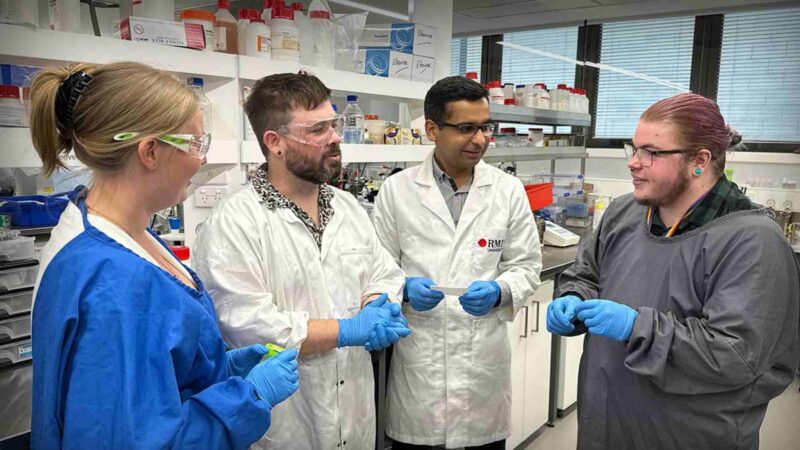Dr Jade Murray, Postdoctoral Research Fellow
Turner Institute for Brain and Mental Health, Monash University
VICTORIA, AUSTRALIA
Bench Side Story continues with a Postdoctoral Research Fellow at the Turner Institute for Brain and Mental Health, at Monash University in Melbourne, Victoria, AUSTRALIA.
Dr. Jade M. Murray completed a PhD programme at the Monash University Sleep and Circadian Medicine Laboratory in 2018. Dr. Murray’s broad research interests include studying the effects of circadian misalignment on overall health in both healthy and sleep disordered populations and developing simplified methods for determining the timing of circadian phase. An important innovation in her work has been tracking light-dark exposure data over time to build predictive models of circadian timing for development of personalised delivery systems for sleep-wake interventions to improve health and lifestyle outcomes.
You Might also like
-
Development of novel analytical and diagnostic tools using nanotechnology and microfluidics
Dr Alain Wuethrich is an NHMRC Emerging Leader fellow and ARC DECRA awardee at the Australian Institute for Bioengineering and Nanotechnology.
Hailing from Switzerland, research focuses on the development of novel analytical and diagnostic tools that harness nanotechnology and microfluidics; two rapidly growing fields with high potential to provide diagnostic solutions needed for precision medicine.
-
Antimicrobial technologies & drug delivery platforms
Dr Aaron Elbourne is an ARC DECRA Fellow, Jack Brockhoff ECR Fellow, and Associate Professor within the School of Science at STEM Hub. A leader in nanomaterials, soft matter science, and interface research, Aaron’s work addresses critical challenges in health and the environment.
With a strong focus on translational research, Aaron’s work bridges the gap between fundamental science and practical applications. His leadership in creating innovative technologies, fostering academic-industry partnerships, and empowering future researchers underscores his commitment to advancing science and creating a meaningful impact.
-
Prescribing exercise to regional population with cardiovascular disease & diabetes
Associate Professor Gordon’s research is aimed at determining the optimal methods of prescribing and implementing exercise as part of the health care plan for people with cardiovascular disease and diabetes. Specifically, he is leading work to determine if and how the components of exercise can be considered as a whole for prescribing exercise to generate health benefits. This is important to overcome the series of barriers that people living in rural and regional areas experience when trying to become active.



